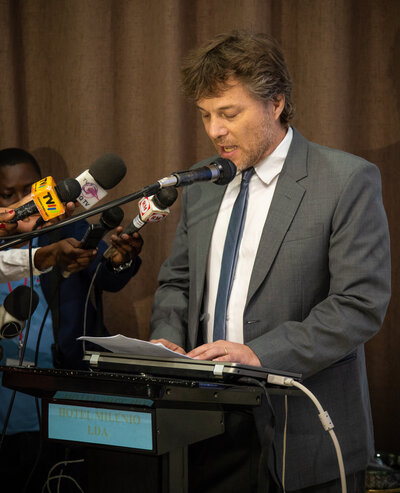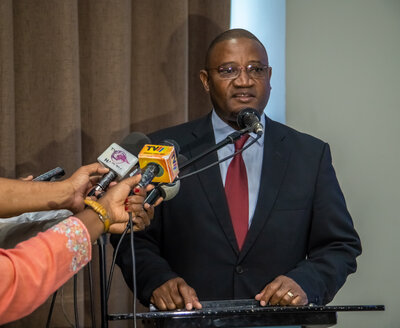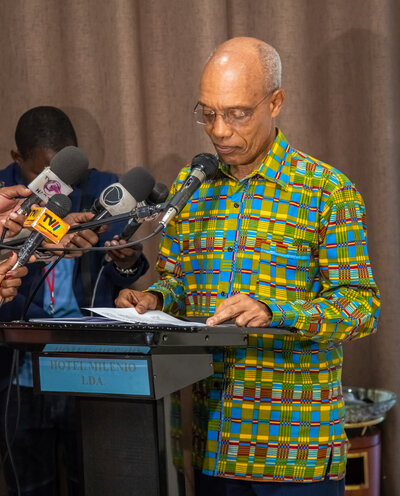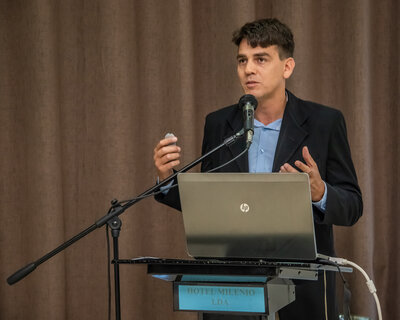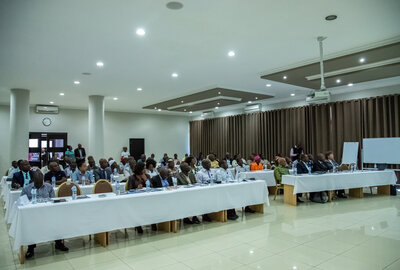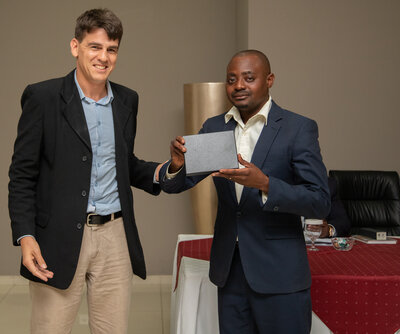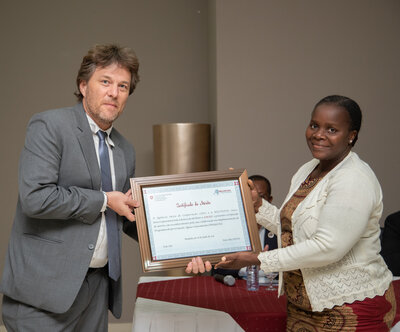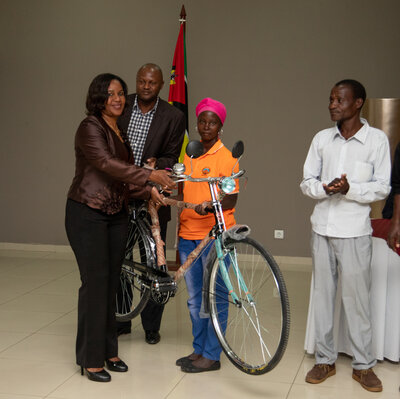On Friday, June 8th 2018, Helvetas organized the closing ceremony of the Governance, Water and Sanitation Programme (PROGOAS) in Nampula. The event was opened by the Governor of the Nampula Province and was attended by different local actors, project stakeholders and partners. Different speakers highlighted the main achievements of the programme in governance, water supply and sanitation.
During the welcome message, the Helvetas Mozambique Country, Jürg Merz, thanked the Mozambican Government, partners and the general population for their involvement, collaboration and support during the implementation of the PROGOAS. On the occasion, he also mentioned: "We are looking forward to continue to support Mozambique's development by implementing other projects."
The opening of the event was directed by the Governor of Nampula, Víctor Borges, who spoke of the relevance of the project in the districts where it was implemented, emphasizing the fact that the PROGOAS has contributed to the increase of water and sanitation coverage. In turn, the representative of the Swiss Agency for Development and Cooperation, Fernando Pililão, said that the ceremony marks the end of a stage and not of activities, because SDC will continue to support the Government of Mozambique in several areas.
Launched in 2009, the project was implemented over a period of nine years in the provinces of Nampula and Cabo Delgado, involving the communities of eight districts. In these districts PROGOAS supported the local governments in effective and participatory development planning and accountability, and in the water and sanitation sector oriented towards improved service delivery.
The event was divided into three separate panels on good governance, water supply and sanitation. The main stakeholders shared their experiences in these areas and in the use of innovative tools introduced by the Helvetas throughout the implementation of the programme. The main lessons of the different panels are the following:
Governance
- The Community Development Councils were successful agents in the promotion of effective participatory planning in the districts.
- Public audit is the right tool for improved transparency and to create ownership over water points.
- Planning fairs allow for effective participatory planning in the districts.
Water
- Districts demonstrated their ability to ensure the sustainability of investments in the water sector.
- The sustainable management of water points can be guaranteed through a private public partnership between local government, water and sanitation committee and local artisans.
Sanitation
- Artisans can be effective promoters of sanitation, but they are confronted with local realities, such as lack access to material for build slab.
- Norms can be used as behavior change factor through a community led total sanitation approach.
A presentation of the preliminary results of the external evaluation of the PROGOAS was made by the responsible consultants. In general, they presented conclusions that agreed with the presentations made during the panels.
The event also served to demonstrate recognition for the collaboration, involvement and support of different actors over the nine years.
The PROGOAS was a project co-financed by Helvetas (Infra-structures) and the Swiss Agency for Development and Cooperation of three implementation phases.


